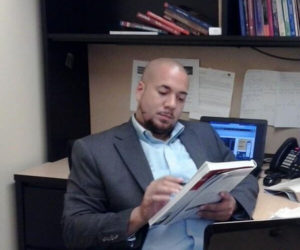I saw Omar Ali yesterday — terrific conversation — and when I asked what topics I should discuss here, he suggested I post whatever interests me — so here’s the anointing of Brazilian strong-man Bolsonaro, and hymn singing in Hong Kong.
Religious behavior in general fascinates me — but when it affects politics, people often don’t realize what powerful motivation it can provide.
**
Religion can be coercive, as in the anointing of Bolsonaro —
see video
— Remember the laying on of hands over Donald Trump? The overarching authority of religion has Trump bow his head, but sets Bolsonaro on his knees! —
— and religion can be liberating —
see video
— That’s a crowd of protesters in Hong Kong singing “Sing Hallelujah to the Lord”.
Remarkable.
**
From Reuters in June:
‘Sing Hallelujah to the Lord’ an unlikely anthem of Hong Kong protests
For the past week, the hymn has been heard almost non-stop at the main protest site, in front of the city’s Legislative Council, and at marches and even at tense stand-offs with the police.
It started with a group of Christian students who sang several religious songs at the main protest site, with “Sing Hallelujah to the Lord” catching on among the crowd, even though only about 10 percent of Hong Kong people are Christian.
“This was the one people picked up, as it is easy for people to follow, with a simple message and easy melody,” said Edwin Chow, 19, acting president of the Hong Kong Federation of Catholic Students.
The hymn is simple, optimistic yet adds a touch of solemnity and calm to the proceedings, and also affords some legal protection to the protesters —
The students sang the songs in the hope of providing a cover of legitimacy for the protest. Religious gatherings can be held without a permit in the financial hub.
“As religious assemblies were exempt, it could protect the protesters. It also shows that it is a peaceful protest,” Chow said.
The hymn was composed in 1974 by Linda Stassen-Benjamin in the United States for Easter. Its five words are repeated over four stanzas in a minor key, which gives it an air of meditative solemnity.
**
Between the anointing of a dictator and the hymn singing of a crowd of protesters demanding democratic freedoms from the Chinese state, we have quite an instructive confluence of ways in which religion can enter the public square.
No doubt there are others. In Nepal, there’s the tantric cultus of the goddess Kubjikaa. What’s religion up to in your neck of the woods?
